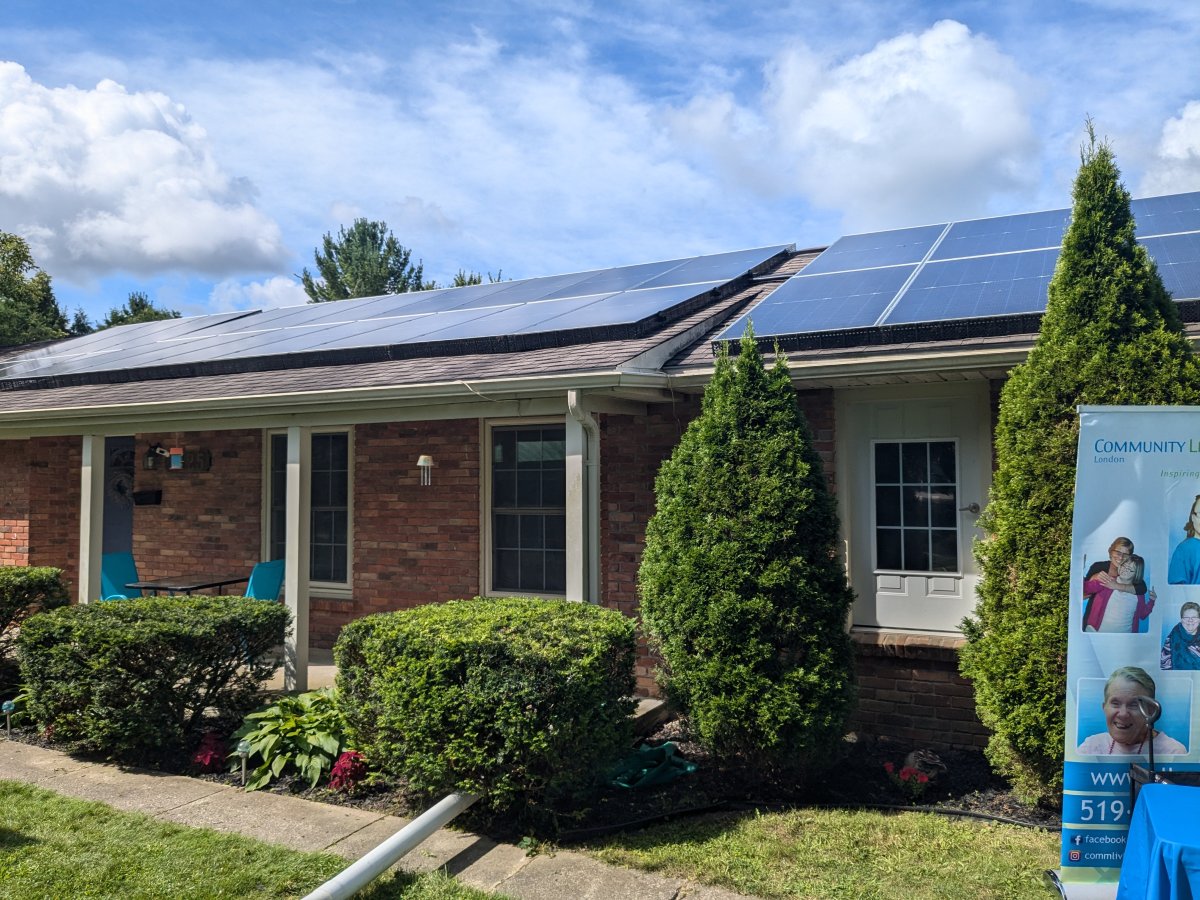The federal government will provide $425,935 in funding to the London Environmental Network (LEN) for green and affordable housing.

The money will be invested through the Smart Renewables and Electrification Pathways Program (SREPs), to LEN’s Non-profit Resiliency Project, which aims to retrofit multi-unit residential buildings owned by low-income non-profits so they can hit net-zero emissions.
A building owned by Community Living London (CLL), located at 1425 Webster Street, was the first to get the retrofits. In collaboration with German Solar and Net Zero Insulation, solar panels were installed on the building’s roof, new insulation was put in, and new efficient windows will replace the building’s old windows.
Liberal MP for London West Arielle Kayabaga says the house shows a “crucial connection” between climate action and affordability.
“Our government is very committed to helping low-income, multi-unit residential buildings owned by nonprofit organizations in London achieve net zero emissions,” Kayabaga said. “We’re improving sustainability to offset any emitted carbon. These efforts include training building managers on emissions tracking and sustainability, providing customized environmental audits for the residents, and investing in solar panels retrofits.”
Nicole Karsh, director of programs at LEN, says CLL was one of the first organizations to join the project.

Get breaking National news
“We looked through all the buildings we had in our catalog, and this one was showing really high needs. It has quite a big square footage. The utility bills were pretty high,” Karsh said. “We collected their utility data, we put together customized sustainability reports, and then we were really fortunate to receive funding to go towards the actual retrofits themselves.”
Work on the building, including planning and installation, took around eight months, according to Karsh, who says she looks forward to working with CLL on future multi-unit buildings.
“They’re just incredibly flexible, accommodating. They’re always able to answer the phone. Even the tenants were coming out and were very excited about the work that was being done,” she said.
John McVeigh, CLL’s manager for accommodations, echoed the sentiment, saying the project would not have been possible without LEN.
“The impact for these people that live here will be immeasurable. The savings that they will have will allow them to do so much more in their life,” McVeigh said. “For CLL, we’ll be able to put some money aside for any improvements in the future or maintenance that needs to be done.”
The solar panels began collecting power at the beginning of July and have generated around 3,500 kilowatt hours of energy (kwh) so far, according to Millar Nicol with German Solar. An average house in Ontario consumes around 9,500 kwh per year.
“We’ve almost got a third of a normal house produced already,” Nicol said. “It’s going to keep doing that year after year after year after year. It’ll still be working in 30 years. It might not be 100 per cent of the output, but they’ll be guaranteed to be about 80 per cent.”
LEN plans on doing more retrofits, with their next project confirmed for this fall.








Comments